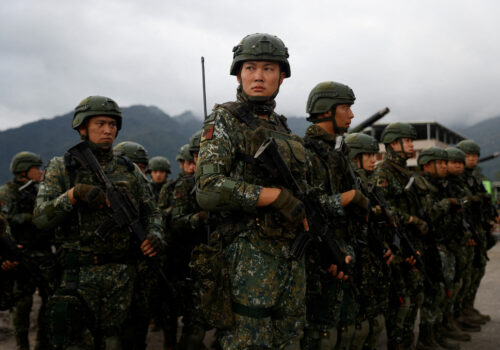- Arms Control
- Conflict
- Crisis Management
- Defense Industry
- Defense Policy
- Defense Technologies
- Extremism
- Infrastructure Protection
- Intelligence
- Maritime Security
- Missile Defense
- National Security
- NATO
- Non-Traditional Threats
- Nuclear Deterrence
- Nuclear Nonproliferation
- Peacekeeping & Peacebuilding
- Security Partnerships
- Space Security
- Terrorism
- Weapons Trafficking
Programs

The Scowcroft Center for Strategy and Security works to develop sustainable, nonpartisan strategies to address the most important security challenges facing the United States and the world.














